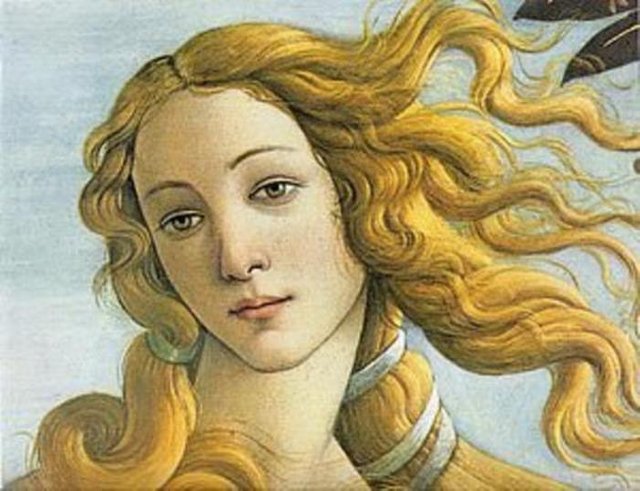
PAINTINGS AND MYTHS

Hey, guys! I hope that you had a great weekend. As a result of the last few posts that I wrote and the fact that they were about paintings, I thought about doing this post that I bring you today. Many famous paintings are based on known myths or stories from literature that have served to inspire many artists. It has not only been writers, sculptors, but also painters who have fallen into the temptation to tell these famous stories through their works.
As I didn't want this post to be too long and not become a thousand chapter delivery, I have only selected five works, perhaps the one that deals with the most well-known and attractive mythological stories for me. Like any selection, it is an individual act and one that can surely be judged by you. I am sure, as well, that in this selection I leave some outstanding works and myths outside, but I am very pleased to select these five. Let us begin our count:
THE PANDORA MYTH
Pandora is an oil painting on canvas, 91 cm x 152 cm, created in 1896 by the British painter John William Waterhouse. According to the myth, Pandora is the first woman like Eve in the Judeo-Christian religion. Hephaestus (god of fire) made her in the image and likeness of the immortals with the help of Palas Athena (goddess of wisdom). Zeus decided to create it to give a lesson to the human race, because Prometheus had stolen the divine fire to give it to men. Each god gave Pandora an attribute like beauty, persuasion and manual skill, among other things; but Hermes (messenger of the gods, and interpreter of the divine will) put in his heart the lie and the fallacy. It all begins when Zeus gives Pandora a pitcher to take to Epimetheus (Prometheus' brother). It contained all existing evils, and it was forbidden to open it; however, Pandora possessed a great curiosity and ignored the order of Zeus and opened the jug. At that time, all evils escape and lodge among men. Frightened, Pandora closes the jug leaving only one element without escaping, Hope. From this myth is born the expression 'to open Pandora's box' and that the last thing that is lost is hope.
LEDA AND THE SWAN
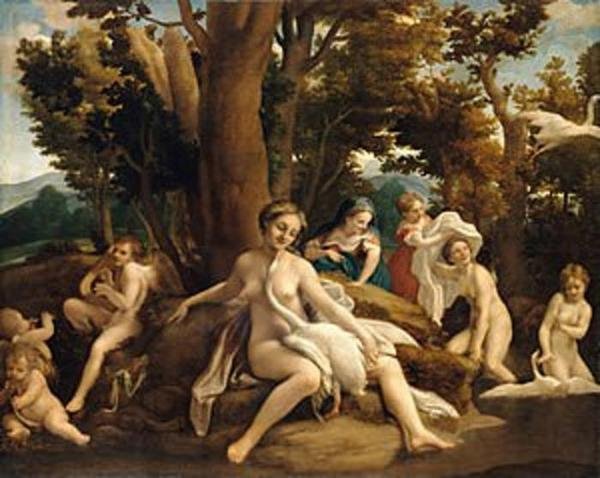
Leda and the Swan (in Italian, Leda e il cigno) is a painting by the Italian painter Antonio Allegri da Correggio. It is made in oil on canvas, and was painted around 1531-1532, and is currently in the Gemäldegalerie of the Staatliche Museen zu Berlin - Preussischer Kulturbesitz (Berlin, Germany). The story of Leda and the swan is one of the most sensual accounts of Greek mythology. Zeus, married to his sister, the goddess Hera, was unfaithful on many occasions. In some of them he metamorphosed into an animal. According to the myth, Leda was a very beautiful woman, princess of Etolia and was married to Tindareo. Zeus fell in love with her and turned into a swan as he pretended to flee from an eagle, sheltered in Leda's lap he managed to overcome her resistance with caresses and made love with Leda. That same night Leda also joined her husband. As a consequence, she laid two eggs: from one are born Pollux and Helena, sons of immortal Zeus; from the other, Castor and Clitemnestra, mortal sons of Tindareo. Leda's sons were the protagonists of great myths and legends. Beaver and Pollux were famous heroes and have their own constellation, Gemini, which represents these twins. Helena, was the supposed cause of the ruin of Troy, and Clitemnestra that ended up victim of the most famous matricide of the western culture, that of Electra and Orestes.
ECO & NARCISO
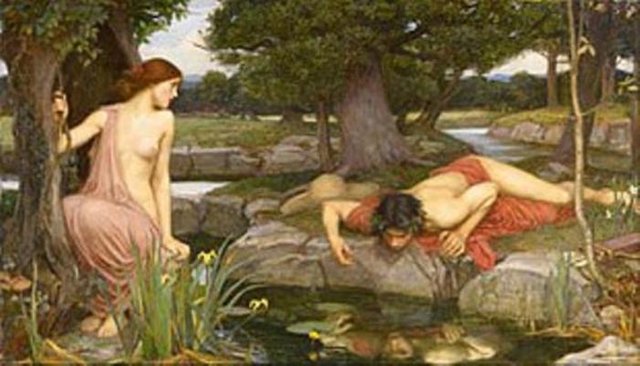
Echo and Narcissus is a painting by John William Waterhouse, which dates from 1903 and illustrates the poem Echo and Narcissus by Ovid Metamorphosis. The painting is in oil on canvas and measures 109.2 centimeters (43 inches) by 189.2 centimeters (74 inches). It is part of the Victorian collection at the Walker Art Gallery in Liverpool, Merseyside, England, which was purchased by the museum in 1903. In the best-known version of the myth, Eco falls madly in love with Narcissus of whom the fortune-teller Tiresias predicted, at birth, that he would have a long life if he did not contemplate himself. This young man was very beautiful but despised everyone's love. The poor nymph was no exception and Narcissus despised his heart. Then, she, desolate, offended, locked herself in a lonely place and there she stopped eating and taking care of herself. So it was consumed until it disappeared and disintegrated in the air, leaving only her voice that repeated the last words of anyone. This voice is what we call an echo. Because of Echo's death, the gods were upset and all the other rejected women prayed to the gods for revenge. Nemesis (revenge) listened to them and made Narcissus contemplate his own image. When the young man did, he fell in love with his own beauty and cared nothing more than his image. It is said that in the place where Narcissus died, the flower of the same name was born and that those people who love to see themselves in the mirror are often called narcissists.
ULYSSES AND THE SIRENS
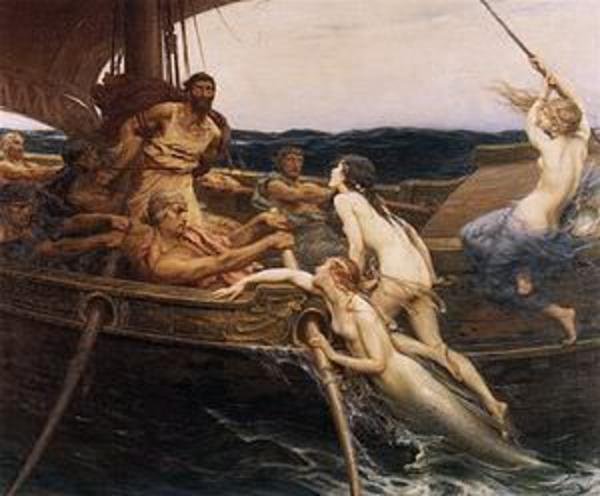
Ulysses and the Sirens is an oil painting measuring 177 cm x 213.5 cm, painted on canvas by the Victorian painter Herbert James Draper in 1909. According to the myth, sirens were beings similar to nymphs. They lived in the sea and had the body of a bird with the face of a woman, although later they were taken as beings with the tail of a fish. One of their main characteristics was their beautiful voice, which was sweet and melodious. Thanks to this gift, they attracted ships and sailors, who were enraptured and jumped into the sea only to hear them better and died drowning. But there was someone who could stand the song of the sirens and that was Ulysses. Ulysses, on Circe's advice, ordered all the men on the ship to cover their ears with wax so that they would hear nothing. Meanwhile, Ulysses tied himself to the mast of the ship with his ears uncovered, but ordered the crew, no matter how much he begged, not to untie him. When they passed by the sirens, the sailors felt nothing because their ears were covered, but Ulysses wanted to untie himself and throw himself into the sea. In the end he was able to save himself. Of course, the song of the sirens represents the power of mirage and the spell to remove man from his path or goal.
THE BIRTH OF VENUS
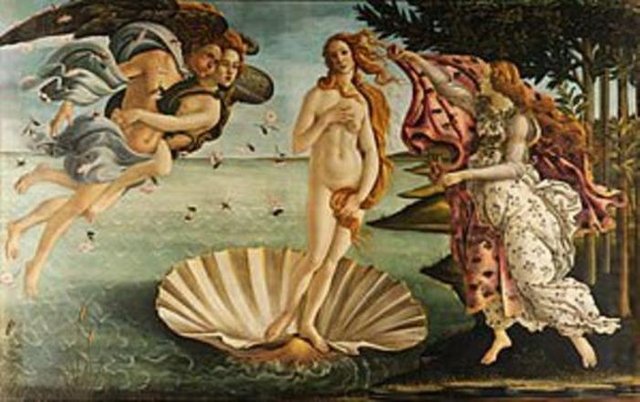
The Birth of Venus is a painting by the Renaissance painter Sandro Botticelli, one of the masterpieces of the Florentine master. It is executed in tempera on canvas and measures 278.5 cm wide by 172.5 cm high. It is conserved in the Uffizi Gallery in Florence, where it is exhibited in room 10-14, called "de Botticelli" (Inv. 1890 n. 878). This painting represents the birth of Venus. According to the myth, from the union of Gaia -the Earth- and Uranus were born the Titans, two of which, Cronus and Rhea, would eventually be the parents of the gods of Olympus: Zeus, Hera, Poseidon, and so on.
But before all this happened, Uranus, who hated his children, wanted to return them to the bosom of Gaia, to the bowels of the Earth. The latter, indignant, allied herself with her youngest son, Cronus, to cut off Uranus' genitals and throw them into the sea. From those genitals, from the foam that emerged from them, was born, as an adult, the beautiful Venus, which was pushed by Zephyr, god of the winds, and Aura, goddess of the breeze to the shores of Cythera, on whose beach was Venus collected by one of the Hours, goddesses of the Seasons, and more specifically by that of spring, Flora, as suggested by the mantle covered with flowers.
The paintings are works of art that, through images, take the observer to deep dialogues, leaving a message that adjusts both to reality and fantasy, seeking a certain end. With these works we are not only pleased in their shapes and colors, in the technique or skill of the artist, we also remember the myths that served as inspiration, which connect us with our origin.
I hope you enjoyed this pleasant walk through the different paintings and the interesting myths that gave rise to them. Remember to vote for @adsactly as a witness and join our server in discord. Until a next smile. ;)
BIBLIOGRAPHIC REFERENCES
https://es.wikipedia.org/wiki/Caja_de_Pandora
https://es.wikipedia.org/wiki/Leda_y_el_Cisne
https://en.wikipedia.org/wiki/Echo_and_Narcissus_(Waterhouse_painting)
https://es.wikipedia.org/wiki/Ulises_y_las_sirenas_(cuadro_de_Herbert_James_Draper)
https://es.wikipedia.org/wiki/El_nacimiento_de_Venus_(Botticelli)
WRITTEN BY: @nancybriti
Click on the coin to join our Discord Chat

Witness proposal is here:
Go To Steem Witness Page
In the bottom of the page type: adsactly-witness and press vote.

Use small letters and no "@" sign. Or, click here to vote directly!
Thank you!
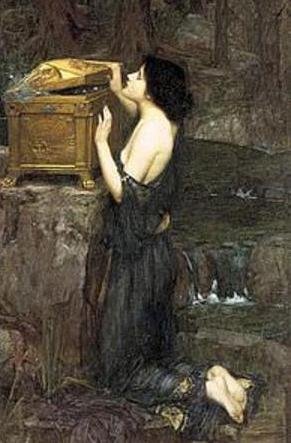
A great painting. You know I always use to admire so.e painting work and those who paint it to look beautiful that they must really be talented if I must say. I love these painting work. Each showing the story behind it. Great work
Posted using Partiko Android
Downvoting a post can decrease pending rewards and make it less visible. Common reasons:
Submit
Magnificent walk through Greek mythology and, at the same time, through great works of universal painting, @nancybriti. Your selection is very accurate and the comments you make of the works is very complete. Myth, that foundation of human imagination, has nurtured art in all its various manifestations. Painting has been one of the preferred fields. My favourites of the works you comment on are "The Birth of Venus" and "Echo and Narcissus". Obviously, the others are first class. It would be interesting to look at reinterpretations in contemporary modern painting. I appreciate your gratifying and illustrative post, and @adsactly for promoting it. Greetings.
Downvoting a post can decrease pending rewards and make it less visible. Common reasons:
Submit
An excellent selection of works and myths, @nacybriti. From the works I appreciate the painting of John William Waterhouse, Echo and Narcissus; and from the myths, I keep the myth of Pandora, so the last thing to lose is hope. Although this myth speaks of the evils that were unleashed in the world by Pandora's curiosity, we face his curiosity, the most important thing is that there remains the hope that is our tablet of salvation against adversity, and in these times of crisis in our country we must keep it firm. Thank you for this interesting publication, @nancybriti and @adsactly for spreading it.
Downvoting a post can decrease pending rewards and make it less visible. Common reasons:
Submit
Great post.
Your post describe clearly about the story of paintings.
Between miths and the beauty of painting.
As a consumers we can see that we are take to dive deeper and try to know the miths. Fortunatelly there are many painters who can illustrate the mith well. The role of painters become so important cause can make the mith live better. Many story in a painting. Every painting has its own story or the story become stronger with the paintings.
Thank you @nancybrity
Thank you @adsactly
Thank you steemit
Warm regard from indonesia
Downvoting a post can decrease pending rewards and make it less visible. Common reasons:
Submit
thank you for sharing with us
Downvoting a post can decrease pending rewards and make it less visible. Common reasons:
Submit
This story was recommended by Steeve to its users and upvoted by one or more of them.
Check @steeveapp to learn more about Steeve, an AI-powered Steem interface.
Downvoting a post can decrease pending rewards and make it less visible. Common reasons:
Submit
Each and every painting have their own story. Nice painting pic.
Posted using Partiko Android
Downvoting a post can decrease pending rewards and make it less visible. Common reasons:
Submit
Hi, @adsactly!
You just got a 0.86% upvote from SteemPlus!
To get higher upvotes, earn more SteemPlus Points (SPP). On your Steemit wallet, check your SPP balance and click on "How to earn SPP?" to find out all the ways to earn.
If you're not using SteemPlus yet, please check our last posts in here to see the many ways in which SteemPlus can improve your Steem experience on Steemit and Busy.
Downvoting a post can decrease pending rewards and make it less visible. Common reasons:
Submit
First @nancybriti, I want to tell you that this publication is very nice. I really enjoyed this post because it contains educational content of two ways of manifesting the imagination: mythology and paintings (with its different techniques).
Second, all this pictorial tour has taken me to the nostalgia of the walks with my father in Florence. All of Florence is a great museum.
Particularly, I love the Renaissance period and above all the blue that characterizes it. The Birth of Venus is undoubtedly a masterpiece that could not be missed in this brief myth-pictorial walk.
I congratulate you!
Thank you very much @adsactly for sharing a publication of such good quality.
Downvoting a post can decrease pending rewards and make it less visible. Common reasons:
Submit